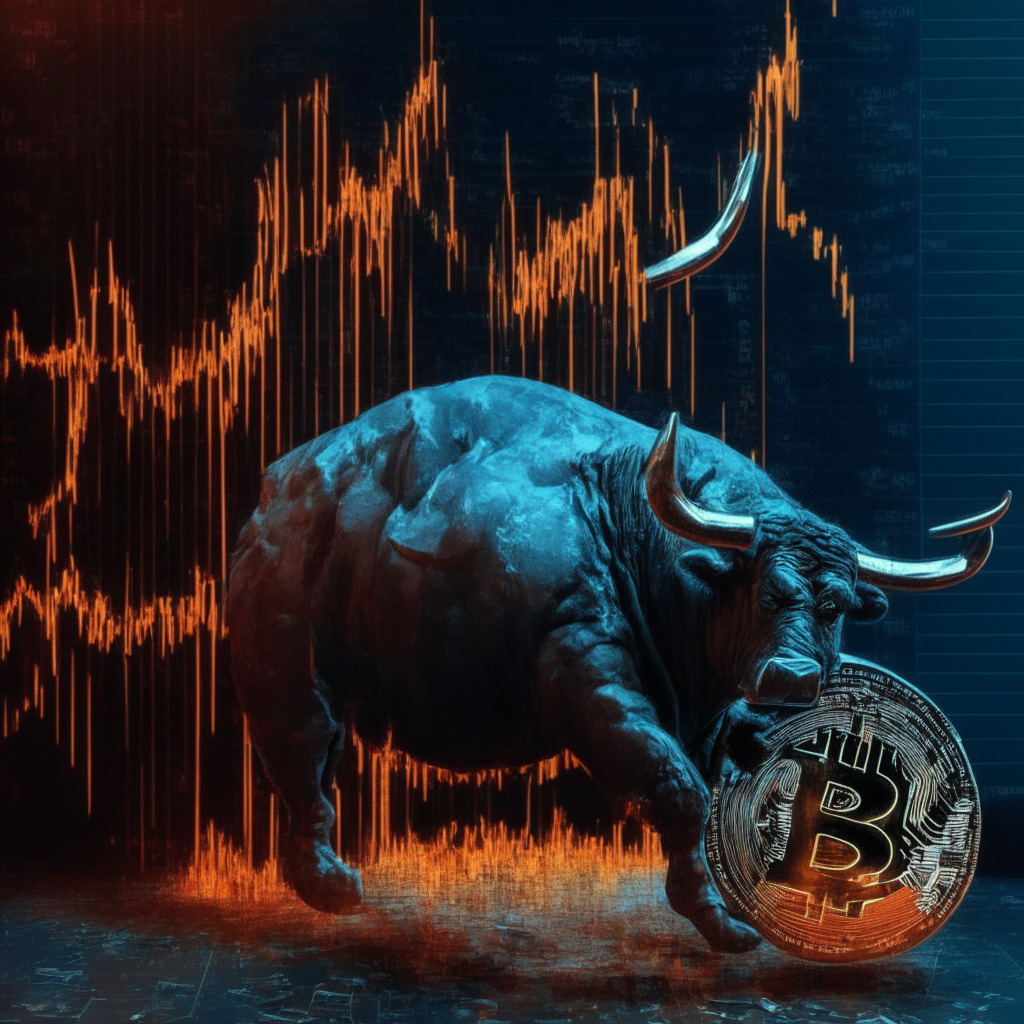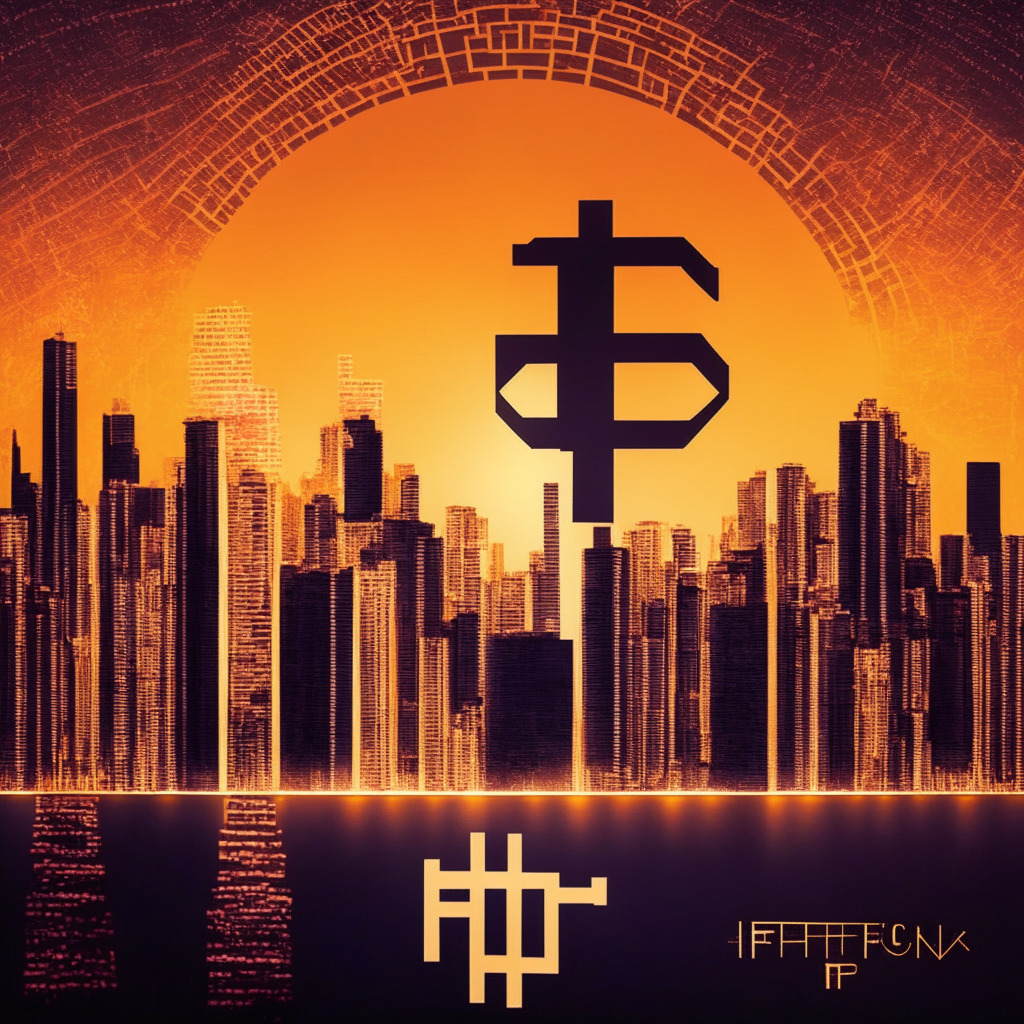OKX Middle East receives an MVP Preparatory license from Dubai Virtual Assets Regulatory Authority, preparing for its license to become operational. The exchange plans to offer spot, derivatives, and fiat services, and recognizes Dubai’s comprehensive regulation standards as crucial to their regional strategy.
Search Results for: OkX
User Protection Funds: A Shield for Crypto Exchanges or a False Sense of Security?
A Nansen report reveals reputable exchanges, such as Binance, OKX, and Bitget, collectively hold over $2 billion in user protection funds. Despite being a positive indicator, these funds don’t guarantee solvency. The uncertain US regulatory environment also poses a potential threat to these exchanges’ growth.
Blockchain’s Role in Film Industry: A Creative Revolution or Risk to Artistic Freedom?
The documentary “Bad Like Brooklyn Dancehall” highlights the connection between dancehall music and blockchain technology, as it was supported by Decentralized Pictures, a nonprofit using crypto tokens and community voting to fund cinematic arts. The film’s production explores the potential of marrying artistic creations and blockchain, showcasing the pros and cons of this intersection.
196M BLUR Token Unlock: Market Impact, Whale Moves, and SmartMoney Strategies Explained
The crypto community is abuzz as 196 million tokens, worth $62.3M and equivalent to approximately 40% of BLUR’s circulating supply, will be unlocked. The event has sparked discussions regarding potential impacts on market sentiment and the buying or selling behavior of SmartMoney and whales.
Bank of China Issues Tokenized Notes: Hong Kong’s Path to a Crypto Hub and Decentralization Debate
BOCI, the investment arm of Bank of China, partnered with UBS to issue tokenized notes on the Ethereum blockchain in Hong Kong, marking a significant step towards integrating blockchain technology and tokenized assets into the traditional financial industry. As Hong Kong embraces cryptocurrency regulation, this move signals a positive shift in the digital economy landscape and could inspire further innovation.
Hong Kong Invites Coinbase Amid US Crackdown: Will the City Become a Crypto Hub?
Hong Kong legislator Johnny Ng invites Coinbase and other crypto exchanges to establish operations in the city, amid US regulatory hostility. Hong Kong’s Securities and Futures Commission is now accepting licensing applications, and its crypto-friendly stance may attract global operators seeking favorable regulations and a strong financial ecosystem.
Hong Kong’s Crypto Embrace: Boon for Innovation or Path to Financial Risks?
Hong Kong actively regulates crypto assets, offering support to global crypto trading operators and paving the way for cryptocurrency growth and innovation. Hong Kong’s Financial Secretary announced the government’s commitment to a robust crypto and fintech ecosystem, attracting attention of global tech leaders and positioning the region as a leading crypto-friendly jurisdiction within Asia.
Crypto Hires Key Players Amidst SEC Crackdown: A Struggle for Trust and Growth
Binance hires Rachel Conlan as VP of global marketing amidst increasing SEC enforcement actions, while Circle welcomes Heath Tarbert as chief legal officer and head of corporate affairs. These key appointments come as the crypto industry faces stringent regulations, providing opportunities for exchanges and issuers to prove their legitimacy and resilience.
Crypto Crash: Analyzing the $350M Liquidation and Impact on Major Altcoins
The crypto market experienced a significant crash on Saturday, with a 5% drop in global market cap and $350 million liquidated as over 170,000 traders felt the impact. Major liquidations, SEC lawsuits, and platform delistings have contributed to this collapse, with Bitcoin, Ethereum, and numerous altcoins facing declines.
Bitcoin’s Struggle at $27,000: Regulatory Scrutiny and Global Economic Crisis Impact
Bitcoin price nears $27,000 but faces challenges from stricter regulatory scrutiny following FTX’s bankruptcy and a global economic crisis. Bitcoin derivatives markets indicate low probability of breaking above $27,500, suggesting a bearish market structure and a likely $25,500 support retest.
Crypto Tax Compliance Pressure and North Korea’s Alleged Laundering: A Troubling Connection
The crypto industry faces increasing pressure for tax compliance as US Congress members urge Treasury and IRS to implement regulations. Meanwhile, funds from the $35 million Atomic Wallet hack are traced to Sinbad.io, allegedly involved in laundering over $100 million in cryptoassets.
Crypto Market’s Resilience Amid SEC Lawsuit Against Binance: Unwavering or at Risk?
The crypto markets remained resilient after the SEC filed a lawsuit against Binance and its founder for reportedly violating federal securities laws. Despite massive net outflows, Binance’s stablecoin balance stays healthy. The lawsuit’s outcome will be crucial in shaping the crypto market landscape and token offerings regulation.
Crypto Traders’ $320M Loss in 24 Hours: Binance Lawsuit and Market Vulnerability Explored
Cryptocurrency traders faced $320 million in losses due to liquidations in 24 hours, following a lawsuit against Binance by the SEC. The majority of these liquidations targeted long positions, with 119,000 traders affected, highlighting the delicate balance in the ever-evolving crypto market.
Crypto Signup Bonuses: A Comprehensive Guide & Platform Comparisons
Crypto signup bonuses are incentives for joining cryptocurrency exchanges, such as eToro, StormGain, and Coinbase. It’s essential to compare supported currencies, NFTs, trading, and account fees alongside bonuses to select the exchange that best fulfills long-term needs and interests.
Arbitrum’s Price Surge: Behind the Rally and Potential Headwinds
ARB’s price rose by 9% as US Senate voted to raise the debt limit, sparking market interest. Trader Andrew Kang’s $1M stablecoin deposit into Arbitrum pools fueled speculation of leveraging ARB. However, potential headwinds and a bear flag pattern may hinder ARB’s rally.
Binance Market Share Drops after Ending Zero-Fee BTC Trading: Healthy Competition?
Binance’s market share has slid to 46.3%, its lowest since October 2022, following the end of its zero-fee Bitcoin trading promotion. Despite the decrease, Binance remains confident in its financial performance and focuses on offering new products while investing in compliance processes. Meanwhile, smaller exchanges like Upbit are gaining momentum in the competitive market landscape.
Huobi Aiming for Hong Kong Crypto License: Pros, Cons, and Regulatory Hurdles
Huobi crypto exchange aims to obtain a crypto trading license in Hong Kong, with potential approval by year-end, according to Huobi advisor Justin Sun. The strategic relocation to Hong Kong positions the company closer to launching Huobi Hong Kong in the city that aims to become a virtual asset hub.
Hong Kong’s Crypto Dilemma: Striving for a Digital Asset Hub Amid Regulatory Uncertainties
Hong Kong’s new regulatory framework for cryptocurrencies prioritizes investor protection and aims to establish the city as a leading digital-asset hub. However, the crypto industry expresses caution over the costs and complexities of adhering to strict rules, and future challenges are anticipated.
Binance Market Share Shrinks by 25%: Regulatory Pressure and Market Conditions to Blame
Binance’s market share has dropped by 25% due to increased regulatory scrutiny from the US and termination of a zero-fee trading campaign. Other crypto exchanges, such as Huobi and OKX, have witnessed increased market shares since March.
Hong Kong’s First Bitcoin Spot ETF: Contrasting Approaches in Asia and the US
Hong Kong prepares for its first spot Bitcoin ETF, showcasing contrasting attitudes between Asian financial hubs and the US SEC. The Hong Kong SFC-approved VSFG (Yibo Finance) aims to list a spot Bitcoin fund as an ETF while engaging with ETF issuers and regulators.
Crypto Meets Formula 1: Mysten Labs’ Impact on Racing and Fan Engagement
Web3 infrastructure firm Mysten Labs partners with Red Bull Racing, introducing blockchain technology into Formula 1. This collaboration enables fan engagement through staked tokens and showcases the growing influence of crypto and Web3 in the sports industry.
Crypto Market Slump Amid Inflation Fears and Growing Regulatory Scrutiny: Kraken Flourishes
Bitcoin and the broader cryptocurrency market experienced a second consecutive day of sell-offs amid worries around inflation and potential interest rate hikes. These concerns stemmed from the U.S. House of Representatives passing a debt ceiling deal, causing Bitcoin to decline to $26,800. Meanwhile, Kraken sees growth in Canada despite the ongoing downturn and increased regulatory scrutiny.
Pepe Coin’s Uncertain Future: Potential Rebound or Continuous Decline?
Pepe Coin price gained 1% in the past 24 hours despite recent declines, with some indicators pointing to renewed growth potential. However, it remains a meme token lacking practical utility. Alternatives like presale tokens, such as ECOTERRA, provide similar opportunities for potential gains.
Kraken Thrives as Competitors Exit Canada: The Changing Crypto Landscape and Regulations
Amidst tightening Canadian regulatory framework and competitor withdrawals, Kraken sees 25% growth in customer deposits and a fivefold increase in mobile app downloads. Maintaining a strong presence, Kraken ensures client asset safety and commits to third-party custodianship.
Hong Kong and UAE Unite for Crypto Regulations: Opportunities and Challenges Ahead
Hong Kong and UAE authorities met to strengthen cooperation on crypto regulations, fostering a friendly environment for global crypto companies. They agreed to establish a joint working group on virtual assets and aim to make cross-border trade easier and secure.
HKMA and CBUAE Collab on Virtual Assets: Boosting Fintech and Challenging US Hegemony
The Hong Kong Monetary Authority (HKMA) and the Central Bank of the United Arab Emirates (CBUAE) collaborate on virtual asset regulations and developments, aiming to strengthen cooperation, promote fintech initiatives, and improve cross-border trade settlement. This partnership coincides with Hong Kong’s Securities and Futures Commission allowing virtual asset service providers to cater to retail investors.
Crypto Exchanges Exit or Embrace Canada’s Regulatory Climate: Analyzing Strategies
Bybit exits the Canadian market due to recent regulatory developments, joining other exchanges like Binance, OKX, Paxos, dYdX, and Bittrex. In contrast, Coinbase, Kraken, Gemini, and Shakepay have chosen to engage with regulators and navigate the evolving crypto landscape by filing pre-registration undertakings with Canadian Securities Administrators.
Hong Kong’s Crypto Haven: Opportunities and Challenges in the Blockchain Future
Hong Kong is transforming into a crypto haven, with developments such as launching the CyberDefender Metaverse for public education, lifting its ban on retail crypto trading, and trialing a central bank digital currency. However, the city must ensure safeguards and education to protect its growing crypto community.
Hong Kong’s Virtual Asset Ambitions: Huobi’s Role, Licensing & the Crypto Ecosystem Debate
Hong Kong aims to become a virtual asset hub, with Huobi’s subsidiary launching spot trading and virtual asset custodial services. Huobi HK seeks license approval from Hong Kong’s Securities Regulatory Commission and plans to enhance security, compliance, and operational efficiencies. The success of top exchanges may lead to a more regulated virtual asset market in Hong Kong.
Pepe Coin’s Downturn: Can Exchange Listings Save It or Should You Look to Wall Street Memes?
Pepe Coin price saw a 5.5% drop in 24 hours, raising concerns about future depreciation. The token’s previous growth was fueled by exchange listings, but current opportunities seem scarce. Alternatives like Wall Street Memes offer traders potential for market gains.
Hong Kong Retail Crypto Trading: Balancing Innovation and Regulation Challenges
Hong Kong’s retail trading regime launches on June 1st, with several cryptocurrency companies, like CoinEx and Huobi, announcing their Virtual Asset Service Provider (VASP) license applications. This has generated a competitive atmosphere among crypto firms, as they aim to establish a strong presence in the region. However, concerns remain regarding potential risks and regulatory challenges for investors.
Hong Kong’s Crypto Retail Trade: Boon for Chinese Coins or Regulatory Concerns?
Hong Kong’s decision to allow retail crypto trade signals a shift in digital currency regulation. Major exchanges join e-HKD Pilot Programme, sparking increased demand for Chinese coins. However, potential drawbacks include regulatory pushback and increased market volatility, making it crucial for individual investors to carefully consider the implications.































